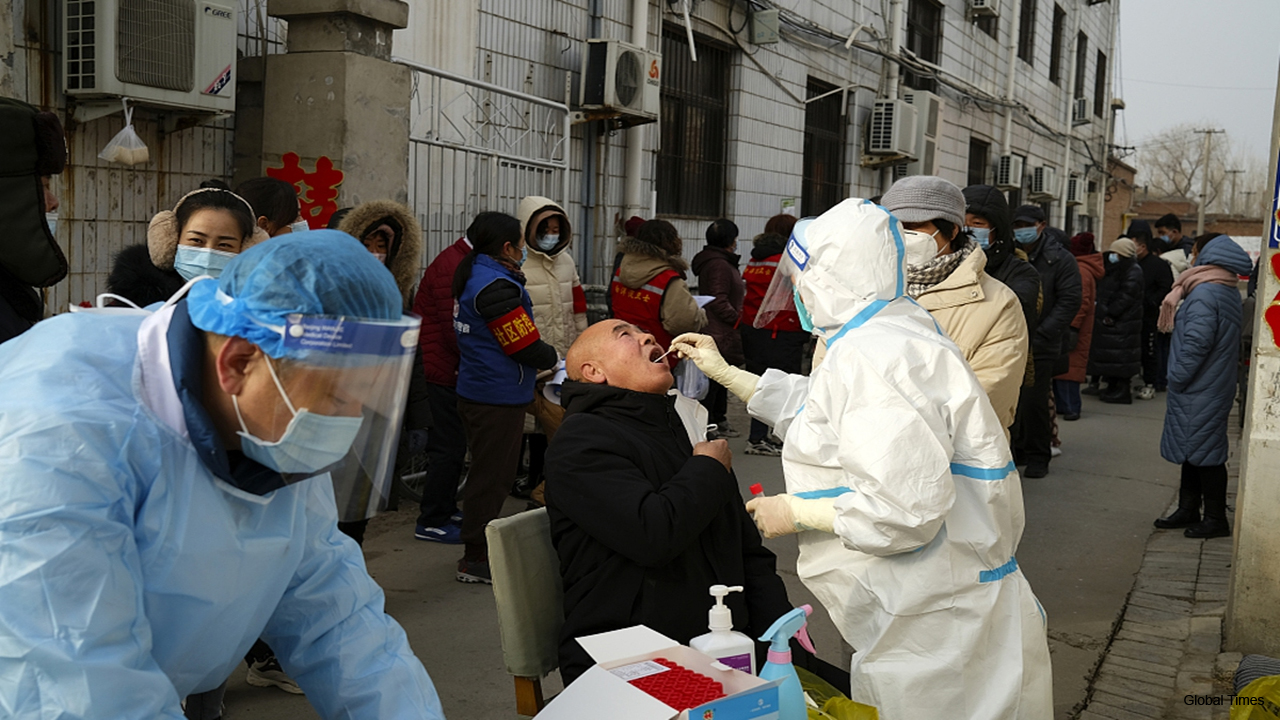China is facing a severe outbreak in the northern Hebei and Heilongjiang provinces that has put more than 28 million people under lockdown. A total of 144 new COVID-19 cases were reported on January 14, the National Health Commission said in a statement, up from 138 cases a day earlier.
The number of new asymptomatic cases, which China does not classify as confirmed cases, fell to 66 from 78 a day earlier. The commission said 135 of the new cases were local infections, 90 of which were in Hebei province surrounding Beijing that has been hit hardest in the latest wave. Another 43 cases were reported in northeastern Heilongjiang province, with Guangxi and Shaanxi provinces each reporting one confirmed case. Amid this surge, a World Health Organization-led (WHO) team of investigators are in quarantine in the city of Wuhan, where the disease first emerged in late 2019.
The 15-member delegation, which got clearance from Beijing after a prolonged negotiation to enter the country, had to reach Wuhan without two of its members after they tested positive for Coronavirus antibodies in Singapore yesterday. Chinese foreign ministry without giving the composition of the WHO team today said that one British expert and one Sudanese expert from Qatar were tested positive for IgM antibodies and were prevented from boarding the flight from Singapore to Wuhan. During the retest, British expert tested negative but Sudanese expert again tested positive for antibodies so he cannot come to Wuhan now. It is not yet clear whether any other WHO expert will be allowed as a replacement.
The ministry said that China currently mandates all travellers from overseas to present a negative result in both a nucleic acid test and a negative serum lgM antibody test within 48 hours of entry as part of its COVID-19 prevention efforts.
Chinese Medical experts are also worried that the incubation period for the new strain is longer than previous outbreaks, with infections detected even after the recommended 14 days of isolation. Also, this outbreak had been spreading faster than previous ones. Therefore, authorities are also trying to reduce the risk that it could spread deeper into the countryside as migrant workers return home for Chinese New Year. Officials have expressed concern that the outbreak in Hebei province has been largely in rural areas, where medical infrastructure is weaker and control measures somewhat harder to enforce.

 China faces a second wave of the pandemic
China faces a second wave of the pandemic










.jpeg)



















.jpg)
.jpeg)